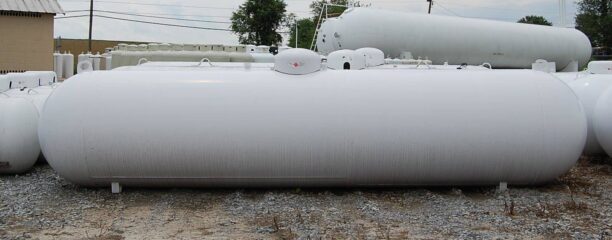Helpful Ways to Save Money on Business Expenses
Running a propane business Expenses involves managing a myriad of expenses, from vehicle maintenance to insurance premiums to customer service and delivery staff. Here, we outline five practical ways for propane businesses to cut costs and boost profitability. 1. Optimize Your Office and Storage Space Rent and utilities can amount to rather significant expenses, but… Continue reading Helpful Ways to Save Money on Business Expenses
Running a propane business Expenses involves managing a myriad of expenses, from vehicle maintenance to insurance premiums to customer service and delivery staff. Here, we outline five practical ways for propane businesses to cut costs and boost profitability.
1. Optimize Your Office and Storage Space
Rent and utilities can amount to rather significant expenses, but there are ways to minimize these costs specific to propane businesses. They are:
Consolidate Storage Locations: If you have multiple storage sites, consider consolidating them into a single, more efficient location which helps reduce maintenance and security costs.
Remote Work for Office Staff: Encourage remote work for administrative tasks. This can reduce the need for large office spaces and can lower utility bills. Many businesses have successfully implemented remote work policies, resulting in significant savings.
2. Embrace Technology
Investing in the right technology can greatly streamline operations and reduce costs for propane businesses. Smart technological investments include:
Inventory Management Systems: Use automated inventory management systems to keep track of propane levels, reducing the risk of over-ordering or stockouts.
Route Optimization Software: Implement route optimization software for delivery trucks to minimize fuel consumption and time on the road. Efficient routing can lead to significant savings on transportation costs.
Digital Marketing: Utilize digital marketing strategies to reach potential customers. Social media, email campaigns, and search engine optimization (SEO) can be cost-effective ways to promote your business and attract new clients.
3. Negotiate with Suppliers
Building strong relationships with suppliers can lead to cost savings for propane businesses. Consider these strategic options:
Bulk Purchases: Buying propane in bulk can often result in discounts. Negotiate with suppliers for better rates on large orders, especially during off-peak seasons.
Long-term Contracts: Secure lower prices by committing to longer contracts with suppliers. They may offer discounts for the stability of long-term business.
Alternative Suppliers: Regularly review and compare prices from various suppliers. Don’t hesitate to switch if you find a better deal elsewhere.
4. Cut Unnecessary Expenses
Make it a habit to review your expenses to identify and eliminate wasteful spending such as:
Subscription Services: Cancel any subscriptions or services that your business no longer uses or needs. These can add up over time without you realizing it.
Energy Efficiency: Invest in energy-efficient appliances and practices at your office and storage facilities. Simple changes like using LED lighting or implementing a power-down policy for equipment can lead to substantial savings on utility bills.
Vehicle Maintenance: Implement regular maintenance schedules for your delivery trucks to avoid costly repairs and improve fuel efficiency.
5. Focus on Employee Efficiency
Your team is crucial to your business, and their efficiency can impact your costs. You would do well to invest in:
Training and Development: Invest in training to improve your employees’ skills. Well-trained employees are more efficient and can perform tasks faster and more accurately.
Incentive Programs: Implement performance-based incentives to motivate your team. Recognizing and rewarding productivity can lead to better results without necessarily increasing salary expenses.
Flexible Staffing: Use part-time or freelance workers to handle fluctuating workloads. This helps avoid the costs associated with full-time employment, such as benefits and overtime pay.
By implementing these strategies, propane businesses can effectively reduce their many expenses and thereby improve their overall financial health. Regularly review your spending, stay flexible, and be open to new approaches to ensure your propane business operates efficiently and cost-effectively.


